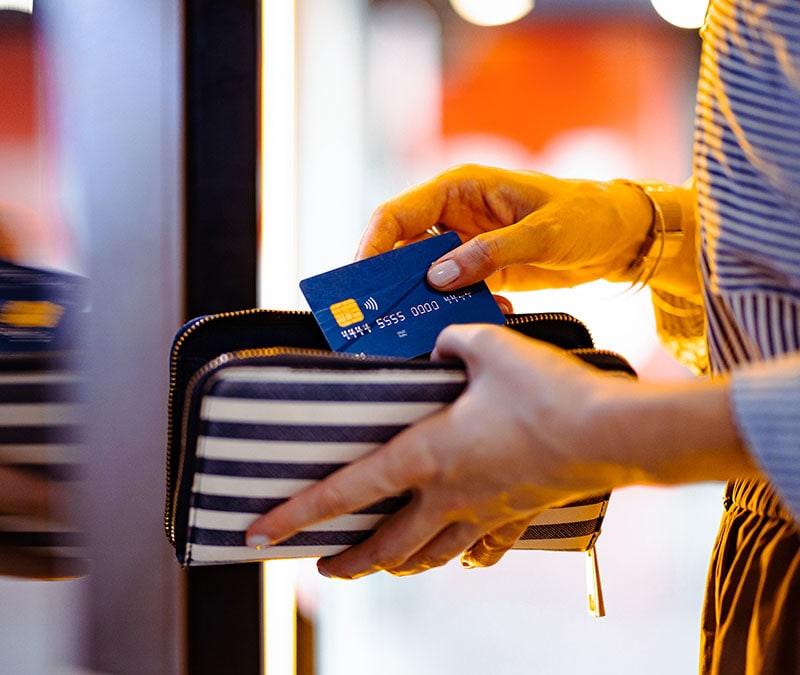What Is Tax-Related Identity Theft and How Can You Recover From It?
Tax-related identity theft happens when someone uses your Social Security number to fraudulently receive your tax refund. Here’s what you need to know.

It's not a great feeling: You try to file your income tax return online only to get an error message. Turns out, someone using your tax file number fraudulently has already filed a return in your name.
Or maybe you mail your income tax return to the ATO. A few weeks later, they contact you to inform you that your return has already been filed.
This is what happens when you are the victim of tax-related identity theft.
How does tax-related identity theft happen?
Tax-related identity theft occurs when someone uses your personal information, including your tax file number, to file a tax return in your name. The thief does this to steal your tax refund.
This is a serious situation. Not only will you have to work with the ATO to file your legitimate return, you'll also have to deal with the fact that someone out there has stolen your identity. This is likely the result of a security breach of some description. If the thief has already filed a fake tax return in your name, they might also use your personal information to take out loans in your name, apply for credit cards using your name, or break into your online bank accounts and credit card portals.
Fortunately, you can help protect yourself against tax-related identity theft, identify this form of theft quickly, and take steps to minimize the damage should you discover that a criminal has filed taxes in your name. Here's how you can protect yourself against this form of fraud.
Recognize the signs of tax-related identity theft
There are several signs that someone might have used your personal information to file a tax return in your name.
You try to file your return online only to have the ATO reject it: The ATO will prevent you from e-filing your return if there’s already a return filed under your tax file number. This is the surest sign that someone has stolen your identity via an online scam and you are the victim of tax-related identity theft.
You receive a letter from the ATO stating that a tax return has already been filed with your tax file number: You might prefer filing your taxes the old-fashioned way, by mail. If, after doing this, you receive a letter from the ATO stating that someone else using your tax file number has already filed a return? It’s a safe bet that you’re the victim of identity theft.
The ATO notifies you that an online account has been created in your name: You can create an online account with the ATO at my.gov.au. If you receive a letter from the service stating that someone has created an account in your name and you know you're not the person who did this? That's another sign that someone is using your personal information to access the ATO under your name.
You receive a transcript in the mail that you never requested: You check your mailbox one day to see a tax transcript from the ATO. If you didn't request this transcript, that's another sign that someone might have stolen your identity.
Take these steps if you’re the victim of tax-related identity theft
If you try to e-file your tax return and it is rejected because of a duplicate filing, your first step should be to contact the ATO. They can be reached by calling 1800 467 033.
The ATO will take appropriate action, depending on the circumstances.
You should also report this identity theft to the Australian Cyber Security Centreand contact the three national credit bureaus — Experian, Equifax, and Illion— to place a fraud alert on your credit reports.
You can also visit idcare.org. Remember, the same person who used your personal information to file a tax return in your name still has that information. This person might use your personal information to access your online credit card portal and your online bank accounts. Be sure, then, to check these accounts daily. You may also want to update your passwords and security questions on these accounts. If you see suspicious activity, contact your credit card provider and bank immediately.
Victim of identity theft? Here’s how the ATO can help
If your private information, including your tax file number, has been stolen through a data breach, the ATO recommends that you follow these steps:
- Contact the ATO on 1800 467 033 to discuss the issue.
- Contact IDCARE on 1300 432 273. IDCARE is Australia and New Zealand’s national identity and cyber support service and can provide free and confidential advice to victims of identity theft.
- Review your current security practices.
The ATO also advises that they will work with victims of identity theft to try and rectify any damages caused. Assistance is granted on a case-by-case basis and can include applying proactive measures such as having a secret password created for your account.
Don’t expect identity theft to slow down anytime soon
All forms of identity theft are a hassle. If you’re the victim of this crime, you’ll need to cancel and replace your credit cards, monitor your bank accounts and review your credit reports to make sure no one has taken out loans or opened credit card accounts in your name. And the criminals who perpetrate these online scams are showing no signs of slowing their activity.
That’s why it’s so important to remain vigilant. If you can’t file your tax return online, or you receive a letter from the ATO stating that someone has already filed a return in your name, don’t delay. Contact the ATO, your bank, your credit card companies and the three national credit bureaus of Equifax, Experian and Illion immediately. The faster you take action, the sooner you can begin to recover from identity theft.
Editorial note: Our articles provide educational information for you. Our offerings may not cover or protect against every type of crime, fraud, or threat we write about. Our goal is to increase awareness about Cyber Safety. Please review complete Terms during enrollment or setup. Remember that no one can prevent all identity theft or cybercrime, and that LifeLock does not monitor all transactions at all businesses. The Norton and LifeLock brands are part of Gen Digital Inc.





Want more?
Follow us for all the latest news, tips, and updates.